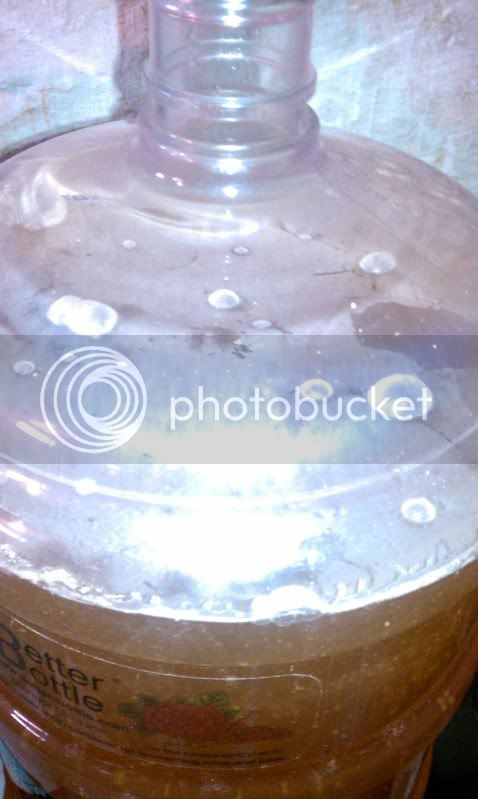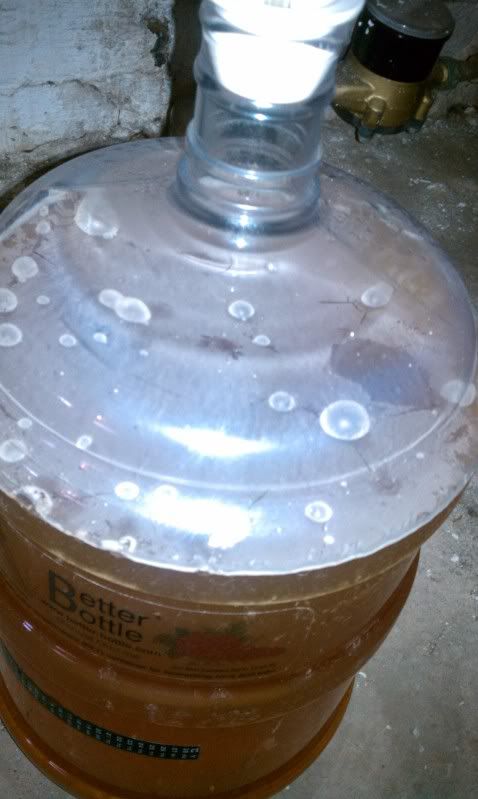RugenBrau
Well-Known Member
I would think @ 1.006 it would be finished. Mine stopped at 1.009

Can't say I noticed any sulfur but I did brew mine months ago and could have easily forgotten. I did get a major blowoff about 24 hours after pitching though. I emailed Wyeast again yesterday and they recommended I just go ahead and bottle it, then continue to let it age a few more months. They claim the sourness will increase and a small amount of Brett character will start to come through.
I'm a bit paranoid about kegging this beer which is what I usually do. I'd prefer to keg, carbonate, then bottle with my beer gun but I don't want to risk contaminating beer lines I use for other beers (ex. beergun beerline, keglines) What do you guys think? Am I being over paranoid or should I stick with using a specific set of bottling equiptment for my sours?
All this Berliner Weisse talk has me gearing up to brew another one. I love this stuff.









I bought the last package of this year's Wyeast berliner weisse blend from my homebrew store, and brewed one up yesterday. After much online research of questionable reliability, its clear that the main problem folks are having with the style is failing to get enough lactic acid out of the Lactobacillus acidophilus. It seems that the bulk of the Lacto activity occurs in that lag time before the Sac yeast kick in and begin to out-compete the Lacto. Perhaps some additional sourness develops during aging, but the first couple of days in the primary seem to be the most critical period for the bacteria. As a result, I'm keeping my temps way up (near 80 degrees) to give the Lacto a competitive advantage during the hours before the Sac start cranking. I'm also considering tossing in a little lactose in the secondary for the Lacto to munch on. Theoretically, I think a lactose addition would work, but I haven't seen any confirmation of positive results.
I'd be careful about ramping it up that high. While you will get plenty of lacto action, you'll also threaten to make it too acidic for the yeast to work. Not only that but you might get some off flavors from the yeast working that high as well.


I bottled the beer this weekend. I managed to break a bottle neck while capping and ended up drinking a pint of flat beer. After drinking a full pint I've decided the lactobacillus really didn't come through much at all. The Brett is there and definitely makes the beer funky but I have a feeling the Lacto didn't have time to do its thing before the ale yeast took over. I won't bother with this 3191 strain again, I'll just buy a seperate pack of Lactobacillus and add it 2-3 days before the ale yeast.
Just opened mine up to test the gravity and get a taste. The results? OG 1.030 FG 1.005 Super clear, mild brett earthiness, slight lactic in the finish, and a doughy bread aroma to the whole thing. I'm going to try to pitch some more lacto at bottling in hopes of souring it quicker. I figure that with all the sugar required to carbing it up to 3.5-4 volumes (Yay thick Belgian and and champagne bottles!) will give the lactobacillus more than enough to chew on and the bottle is a perfect anaerobic environment to let it thrive.
I'm curious how that turns out. It would be a good experiment to split the batch into two at bottling. Add more Lactobacillus to half and leave the other half as control. Or even better. . .split it into thirds and prime 1/3 with corn/table sugar plus Lacto, 1/3 with DME plus Lacto, and 1/3 with corn or table sugar and no Lacto. I'm curious if the Lacto would be able to better utilize the "less fermentable" sugars in DME and produce more acid than it would with corn sugar. I should have tried an experiment with mine. . .but I was pretty happy with the sourness at bottling. Next time. . . .
think it is optimum to pitch the Lactobacillus a week before adding the yeast. I know this sounds crazy, but it is, I think, the only way to get a sour Berliner quickly.
I've been emailing Labservices @ Wyeast about berliners and this is what they've had to say about how long to let lacto run in the worth before pitching yeast:
I'll probably give it a try when I brew a gose....